Behind the News
Behind the News: All the backstories to our major news this week
Published
7 months agoon
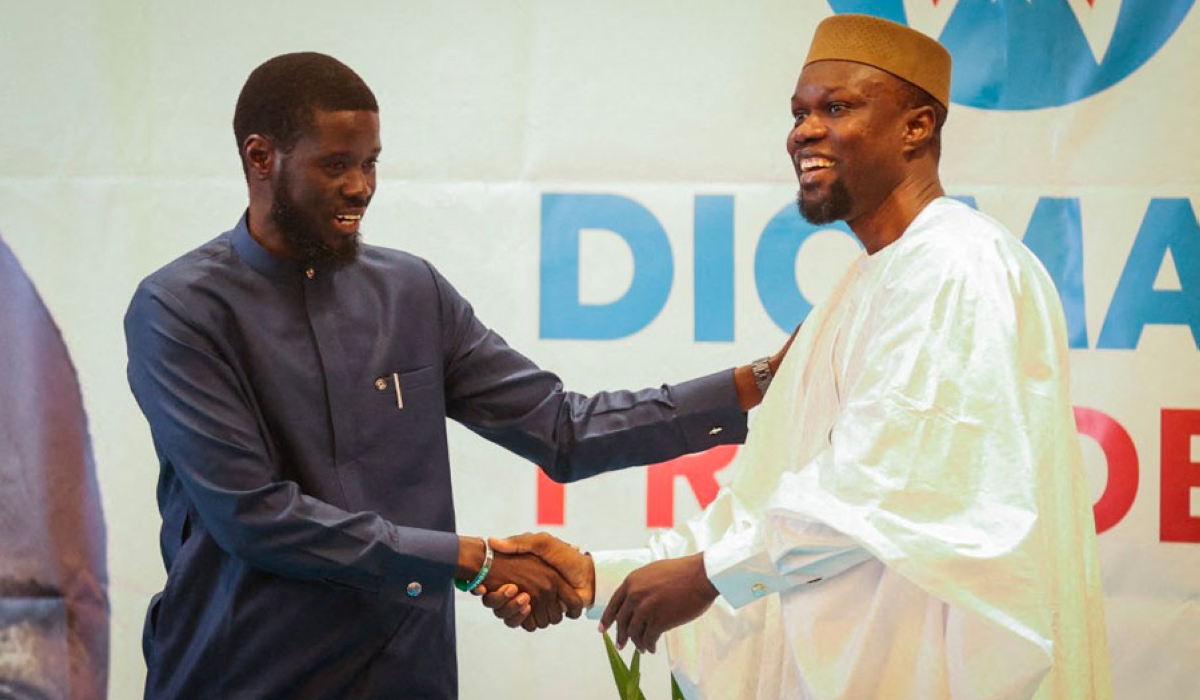
Over the past week, there were many important stories from around the African continent, and we served you some of the most topical ones. Here is a rundown of the backstories of some of the biggest news stories in Africa that we covered during the week: Here comes Senegal's govt of young people Following months in the build-up of the Senegalese election which produced Bassirou Diomaye as President and the appointment of Ousmane Sonko as Prime Minister, an announcement of a new government was made on Saturday, the make-up suggests a groundbreaking political alliance in Senegal's political space as Sonko stressed that the government was "ruptured." It has 25 ministers and five secretaries of state, and almost half of them are from his political party, the African Patriots of Senegal for Work, Ethics, and Fraternity (PASTEF). "This is a government that embodies the project [of Bassirou Diomaye Faye], a systemic transformation the Senegalese people voted for on March 24, 2024, through a first-round election with 54.28% of the vote," Sonko said of the president-elect. Cheikh Diba was appointed as finance minister, which is a big deal as he used to be in charge of budget programming at the finance office. Abdourahmane Sarr was made minister of the economy. Birame Souleye Diop will be in charge of the oil and energy ministry for a country that will start producing oil and gas in 2024. Souleye Diop was vice president of Sonko and Faye's Pastef party, which has since broken up. Two generals were chosen to be ministers of defence and interior. Ousmane Diagne is now the justice minister. He used to be a public lawyer at the Dakar Court of Appeal. Sonko had hinted that the government is likely to embrace anti-France campaigns which have spread across former French colonies in the sub-region, as he hinted it would consider the implementation of the reform of the West Africa region’s CFA franc currency at a regional level first, and if that failed, would consider creating a national currency, if his preferred candidate, Bassirou Diomaye Faye, wins the next presidential election. Beyond the political alliance that ushered in the new government and disposition in the international system, the jury is out on the likely performance of the government of "young people" which spreads an argument about age inclusiveness in political leadership across the continent with Faye being the youngest elected president in the continent. For many years, economic reports have criticized African countries for having too many people. People often see this growth as putting a strain on all of their developing skills. More than 60% of people living in Africa today are younger than 25 years old. By 2030, 42% of the world's young people are likely to be from Africa. Nigeria in fresh living cost crisis as electricity cost blows up The Nigerian government changed the price of natural gas for companies that make electricity to $2.42 per metric million British thermal units (MMBtu) on Monday, which was the first news of the week. The old rate was $2.18mmbtu, so this is more than that. The following day, on Wednesday, the Nigerian Electricity Regulatory Commission allowed a rise in the price of electricity for customers in Band A. Customers will pay N225 per hour for electricity instead of N66 now. More than 70% of Nigeria’s electricity is produced by gas-fired thermal power facilities. As a result, when the Nigerian Electricity Regulatory Commission conducts another tariff review, the increased cost of the item can increase the rate that power users must pay. There has been a surge in the cost of living since May 29 when the subsidies on petroleum products were removed, and the price of diesel which is the common option for alternate energy hit a record high of 1N,900, the new tariff could further compound situation for Nigerians but strong points have been made against continued subsidy regime in the energy sector. Since late 2023, the terrible state of the energy supply has gotten worse because gas suppliers to gas-fired thermal power plants have stopped sending gas to the plants because the plants owe $1.3 billion in debt. In Nigeria, the price of electricity for homes in September 2023 was about 23 naira per kilowatt hour, which is about 0.016 U.S. dollars. But the price of electricity for factories was about 36 NGN per kilowatt hour, which is about 0.026 United States dollars. Nigeria, which has the biggest economy and people in Africa, has had problems with electricity outages for a long time. The country doesn't have enough power plants, and some of the energy that is made is wasted because the grid is so badly broken. Electricity companies can't charge rates that reflect their costs, and they have a hard time collecting money because their meters aren't set up correctly, which discourages new investment. Egypt's al-Sisi begins third term Egyptian President Abdel Fattah al-Sisi was sworn in for a third term on Tuesday in the country's new capital, which is being built outside of Cairo. After being in charge for more than ten years, Sisi "will take the oath of office on the constitution Tuesday in the new parliament premises in the administrative capital," which is east of Cairo, according to Al-Ahram. Sisi, who is 69 years old began the new term as expectations build for wide-ranging changes after a $50 billion international bailout warded off the country’s worst economic crisis in decades. more than three months after he won re-election with 89.6% of the vote over three mostly unknown candidates. After huge protests across the country, Sisi led the removal of former Islamist president Mohamed Morsi. He was previously in charge of the army and the Ministry of Defence. The possibility of a government reshuffle as Cairo tries to deal with the effects of two years of terrible economic problems and a severe lack of foreign currency. Analysts say that at the start of 2024, the Arab world's most populous country was heading straight for failure and economic collapse. Then, suddenly, it got more than $50 billion in loans and investments. Financial services companies have also raised Egypt's credit ratings, as months-worth of blocked inventory began to be released into the import-dependent economy. In just a few weeks, the United Arab Emirates revealed a $35-billion deal to develop land in Ras al-Hikma, Egypt. At the same time, the International Monetary Fund more than doubled a $3-billion loan, and the World Bank and the European Union signed new loans. Former deputy prime minister Ziad Bahaa-Eldin said that the huge bailout kept Egypt "from falling into the abyss." Egypt remains in the eye of the world, particularly the Israel and Hamas war as the boundary between Egypt and Israel stretches 206 kilometres (128 miles) along the eastern edge of the Sinai Peninsula from the de facto tripoint with Palestine (Gaza) to the Gulf of Aqaba in the Red Sea makes Egypt a geopolitical interest for the Western powers. Somaliland's naval space conflict in new twist Ethiopia’s proposal to construct a naval station in the breakaway territory of Somaliland, Somalia took a fresh dimension on Thursday as Somalia announced the recall of its ambassador to Addis Ababa, closing two Ethiopian consulates, and expelling Ethiopia’s ambassador. “This follows … the actions of the Federal Democratic Republic of Ethiopia which infringe upon Somalia’s sovereignty and internal affairs,” Somalia’s foreign ministry said in a statement. Disagreement over a memorandum of understanding that landlocked Ethiopia signed on January 1st, agreeing to lease 20 km (12 miles) of coastline in Somaliland, a region of Somalia that has enjoyed effective autonomy since 1991 and asserts its independence. In exchange for Ethiopia’s recognition as an independent state, Somaliland, the breakaway territory of Somalia, can use a major port with access to the Red Sea thanks to a controversial pact. The contentious deal allows Somaliland to grant Ethiopia the use of a major port with access to the Red Sea in exchange for recognition as an independent state. Somalia has described the pact as an act of “aggression” and a violation of its sovereignty. Somaliland is requesting a 50-year lease from Ethiopia to lease 20 kilometres (12 miles) of the coastline in exchange for Ethiopia’s access to a military installation and commercial marine services. International law does not recognize Somaliland's claim of independence from Somalia in 1991. Its most recent deal with the big country in the region, Ethiopia, has been strongly opposed by the central government in Mogadishu, which has promised to fight it in every way possible. The agreement has made things more tense in the Horn of Africa. The US, the EU, the African Union, and the Arab League have all called for calm and for Somalia's rights to be respected with the president of Egypt, Abdel Fattah al-Sisi, declaring that his country would not tolerate any threat against Somalia, following Ethiopia’s announcement that it would take into consideration Somaliland’s claim to independence in exchange for access to a seaport.
You may like
-


Nigeria considers US diaspora bond, seeks $1 billion monthly remittance
-
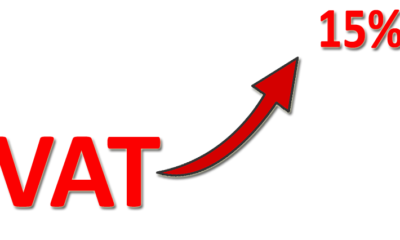

Nigeria to increase luxury VAT to 15%
-
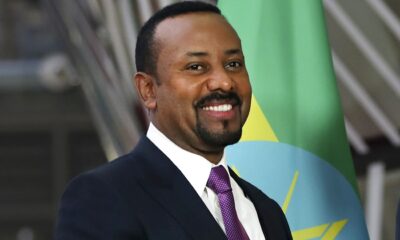

Ethiopian PM Abiy Ahmed meets Putin at BRICS, eyes stronger ties
-


Economic policies must be local, By Lekan Sote
-
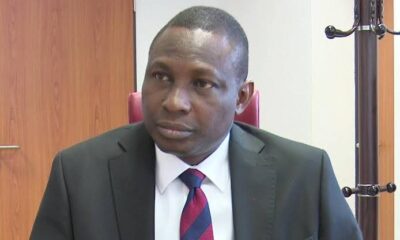

Nigeria: EFCC says country loses $500m to cybercrime annually
-


In 6 months, Nigerians spent over $2.38 million on medical tourism
Behind the News
Behind the News: All the backstories to our major news this week
Published
1 week agoon
October 18, 2024
Over the past week, many important stories from around the African continent were published, and we served you some of the most topical ones.
Here is a rundown of the backstories to some of the biggest news in Africa that we covered during the week:
Another look at Africa’s debt crisis
Conversations around Africa’s public debt were on the table during the week as Achim Steiner, administrator of the United Nations Development Programme, stated on Monday that the world’s poorest countries were unable to meet sustainable development targets because they had to prioritise debt payments over investments.
Addressing a gathering in Hamburg, Steiner asserted that the world financial crisis was impeding countries’ ability to accomplish the objectives, which include eradicating hunger and poverty, increasing access to healthcare and education, providing sustainable energy, and protecting biodiversity.
Since the COVID-19 pandemic’s pervasive effects on economies, the majority of the continent’s nations have suffered with both internal and international debt; yet, few have achieved much in the fight for debt restructuring under the G20 framework.
Numerous African nations, including Egypt, Tunisia, Nigeria, Ghana, Zambia, and others, are struggling with significant foreign debt. Together with Zambia and Ghana, Ethiopia will be a part of a thorough restructuring known as the “Common Framework.”
At the opening ceremony of the annual African Union summit in Ethiopia last year, UN Secretary-General Antonio Guterres made the case for changes to the international financial system’s structure to better meet the requirements of developing nations.
Africa’s whole external governmental debt as of 2021 was 726.55 billion USD. The amount of foreign public debt increased from 696.69 billion dollars in comparison to the previous year.
Concerns are being raised by the rising debt levels in Africa, which could not only hinder economic growth but also make repayment nearly difficult for many of these nations. This begs an important question: When does debt stop being beneficial and instead start to negatively impact a nation’s economic performance?
Kenya remains committed to Haiti, but what does it stand to gain?
Kenya will support an international anti-gang effort in Haiti next month by dispatching an additional 600 police officers there. Haiti’s prime minister was in Kenya to expedite the deployment of the military.
At least eleven countries have pledged to send more than 2,900 soldiers to participate in the Multinational Security Support (MSS), led by Kenya.
Kenya, whose participation in international peacekeeping missions is longstanding, declared earlier this year that it would be deploying 1,000 police personnel, citing as a starting point its assistance to a bordering country.
Approximately 600,000 individuals have been internally displaced due to gang conflict, and hundreds of thousands of aspiring migrants have been deported back to Haiti, where approximately 5 million people are facing extreme famine. October marks the end of the mission’s first 12-month term. As gang violence worsened in 2022, Haiti turned for the first time to foreign assistance.
Nevertheless, it failed to identify a leader prepared to assume the helm and numerous foreign governments were reluctant to back the unelected administration in the desperately poor nation.
Kenya gains significant political value by sending its troops to Haiti on the international scene. Kenya has gained international recognition as a trustworthy ally that is eager to assist other nations. The mission opens up various opportunities. Prior to deployment, Kenyan law enforcement forces will receive specialist training and equipment. In the long term, this will increase the force’s capacity. Of course, there are monetary rewards as the participating nations receive allocations of resources. Because troops will receive additional pay, officers are very interested in being deployed overseas.
Cameroon: ‘Healthy’ Biya remains out of sight
Cameroon’s president, Paul Biya can now be likened to the proverbial cat with nine lives as the 91-year-old has remained “healthy” following latest reports of his death during the week. Rumours have been circulating about Cameroonian President Paul Biya’s possible death in a military hospital in France due to his extended absence. This rumour stems from Biya’s prolonged absence following the September China-Africa Summit when he was anticipated to head back to Cameroon almost away.
As of November 6, 1982, Biya, who is 91 years old, has been in office for 42 years. He is the oldest head of state in Africa, the longest-lasting non-royal national leader worldwide, and the second-longest serving president overall. According to rumours, Biya’s oldest son Franck Emmanuel Biya may be named as his replacement for “continuity” in France.
Since its political independence from France and Britain in the early 1960s, Cameroon has only had two presidents. The country is currently dealing with two serious crises: a deadly Boko Haram insurgency in the north and a separatist conflict that has claimed thousands of lives.
President Biya is one of several long-serving African leaders, including Yoweri Museveni of Uganda, who has been in office since 1982, and Teodoro Obiang Nguema Mbasogo of Equatorial Guinea, Rwanda’s Paul Kagame is also gradually evolving into the group.
Things get tougher for embattled Kenyan Deputy President
During the week, the deputy president of Kenya was impeached by the National Assembly due to charges of corruption and abuse of power. In a vote held Tuesday night, lawmakers decisively decided to remove Rigathi Gachagua from office. The Senate will now decide what will happen to the deputy president.
Parliament adopted a proposal to remove Kenya’s deputy president from office, and on Wednesday, the matter was brought to the Senate for consideration. The National Assembly heard a nearly ninety-minute defence of troubled deputy president Rigathi Gachagua and his allies prior to the vote.
A surge of protests targeting President Ruto’s government has been occurring in Kenya over the last four months due to accusations of corruption made by certain lawmakers and government officials. High taxation and the parliament’s purported inability to act independently of the president were other issues that Kenyans objected to. Gachagua refutes the accusations made by certain lawmakers, who claim that the deputy president assisted in planning rallies against the government.
He supported Ruto in his election victory in 2022 and assisted in obtaining a sizable portion of the vote from the populated central Kenya region. Gachagua, however, has mentioned feeling marginalised in recent months, despite extensive claims in the local media that he and Ruto have strained political ties.
After widespread protests over unpopular tax increases in June and July that claimed more than 50 lives, Ruto sacked the majority of his cabinet and appointed members of the main opposition.
Gachagua infuriated many in Ruto’s coalition by comparing the government to a business and implying that people who supported the coalition had first claim to development projects and jobs in the public sector. Ruto has not yet publicly commented on the impeachment proceedings.
Behind the News
Behind the News: All the backstories to our major news this week
Published
3 weeks agoon
October 3, 2024
Over the past week, many important stories from around the African continent have been published, and we have served you some of the most topical ones.
Here is a rundown of the backstories of some of the biggest news in Africa that we covered during the week:
Musings on CBN rates across Africa: Ghana, Nigeria, and South Africa
During the week, many African countries announced monetary policy decisions. The Central Bank of Nigeria decided unanimously on Tuesday to raise its benchmark interest rate by an additional 50 basis points, to a new record high of 27.25%. This is the sixth hike in a row this year. The decision was made in an effort to reduce inflation, strengthen the naira, and draw in capital. Governor Olayemi Cardoso reaffirmed the bank’s commitment to controlling inflation and underlined how several rate hikes have contributed to its moderation.
Nigeria’s West Africa neighbour followed suit on Friday as the Bank of Ghana reduced its benchmark monetary policy rate by 200 points to 27% at a normal meeting. With inflation having slowed and disinflationary pressures mounting, this is the first decline in eight months and the steepest since March 2018. August 2024 saw a fifth consecutive month of decline in Ghana’s annual consumer inflation, which was still much higher than the central bank’s medium-term target range of 6% to 10%. The country’s annual inflation rate dropped to a nearly two-and-a-half-year low of 20.4% from 20.9% in July.
A week prior, as anticipated, the South African Reserve Bank decreased its benchmark interest rate by 25 basis points to 8% after holding seven consecutive meetings at a 15-year high of 8.25%. As price pressures decreased, the SARB is loosening policy for the first time since the epidemic in 2020
As monetary varying shifts across the continent continue, African nations are still facing numerous severe shocks and significant structural challenges, such as rising food and energy prices brought on by geopolitical tensions like Russia’s invasion of Ukraine, climate issues that impact agriculture and energy production, and ongoing political instability.
Africa’s real GDP growth slowed to 3.1% in 2023 from 4.1% in 2022 as a result of this difficult climate. With growth predicted to reach 3.7% in 2024 and 4.3% in 2025, the economic picture is projected to improve going ahead, underscoring the resilience of African countries.
Zambia and its post-drought plans
Zambia’s finance minister, Situmbeko Musokotwane stated on Friday that the nation intends to quickly recover from its worst drought in living memory and cut its budget deficit in half the following year.
The minister stated in a budget address that the copper producer hopes for a 6.6% growth in 2025, as opposed to a projected 2.3% increase in 2024. The country is aiming for a speedy recovery. as the government crop assessment data shows that over nine million people are affected in 84 of the 117 districts after suffering through the driest farming season in over forty years, which has led to considerable crop losses, an increase in livestock deaths, and worsening poverty,
Real GDP increased gradually between 2022 and 2023, from 5.2% to 5.8%. The supply side was driven by mining and quarrying, wholesale and retail commerce, and agriculture; the demand side was driven by consumer and business spending. Food prices, transit expenses, and the nominal exchange rate are the key drivers of inflation, which is expected to remain elevated and reach 11.0% and 10.9% at the end of 2022 and 2023, respectively.
The economic challenges faced by Zambia are exacerbated by the drought, especially when considering its debt load. Its debt restructuring talks under the G20 Common Framework have progressed far more slowly than was originally anticipated when the Common Framework was first proposed.
In 2017, Zambia was placed under debt distress, and as a result, non-concessional lending from multilateral development banks was discontinued. It’s possible that by overestimating sovereign risks, the main credit rating firms exacerbated the debt crisis and dealing with a post-drought crisis might just be another “too high hurdle”
As the World Bank and Uganda LGBTQ saga continues
The World Bank is taking more action in support of Uganda’s LGBTQ community. The global lender announced on Wednesday that it is implementing steps to guarantee that lenders to Uganda are not subjected to discrimination due to a severe anti-gay law. According to a World Bank representative, both new and continuing projects would be subject to the procedures, which also include an impartial monitoring system to guarantee compliance.
Same-sex partnerships are forbidden and punishable by life in prison; similarly, anyone convicted of “aggravated homosexuality” faces the death penalty. The Anti-Homosexuality Act (AHA) was passed by Uganda, a largely conservative nation, in May of last year and it has led to considerable Western censure and US penalties.
Other than Uganda, several African nations have strict laws that discriminate against individuals who identify as LGBTQ. Hakainde Hichilema, the president of Zambia, issued a warning in March to supporters of the LGBTQ movement to stop endorsing homosexuality. He also asked that Zambia “maintain laws that abhor alien orientations like gayism and lesbianism.”
South Africa, which has a constitution that forbids discrimination based on sexual orientation, was the first and only African nation to legalise same-sex marriage in 2006. Some African nations, such as Angola, Mozambique, Botswana, Lesotho, Mauritius, and Seychelles, have laws that are favourable to the continent’s population but Uganda appears to be unbothered or tempted despite the many causes and costs of its anti-gay stand.
Ahead of Tunisia’s presidential election
During the week, another Tunisian presidential candidate Ayachi Zammel was convicted and sentenced to six months imprisonment for using “fraudulent certificates” as opposition voices in the North African country continue on attack as President Saied positions himself for what is likely to be a reelection, as all but one of the opposition candidates are either incarcerated or have had their eligibility ruled invalid by the Tunisian electoral commission.
On September 19, a third candidate who had received the election commission’s approval was sentenced to 20 months in prison. Saied, who is currently running for reelection for a second five-year term, was originally elected in 2019 as an anti-establishment candidate who pledged to combat poverty and eradicate corruption. However, in 2021 he declared that he would rule by decree after overthrowing Mohamed Ennaceur and the elected parliament, a move denounced as a coup by the opposition and the international community.
Additionally, he has deployed more oppressive strategies, which may indicate that he is not confident in his ability to win with conviction. His severe actions could indicate a new stage in Tunisia’s democratic backsliding and foreshadow more crackdowns and turmoil during an inevitable second term.
Meanwhile, concerns exist over potential voting turnout as well. Under Saied, Tunisia has conducted three elections, with dismal voter turnout in each. Less than one-third of voters cast ballots in favour of a new constitution that solidified Saied’s power and overthrew the 2014 charter in July 2022. After Saied dismissed the previous legislature in December 2022, only 11% of voters cast ballots for new members of parliament, which is among the lowest turnout percentages ever recorded in a national election worldwide. The next December, Saied called elections for a new second house of parliament, repeating this dubious performance.
EDITOR’S PICK
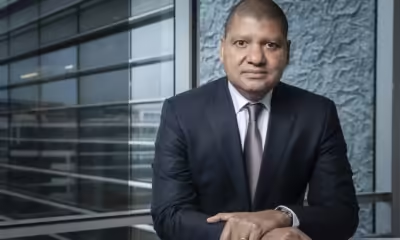

Ivory Coast: Ex-minister challenges ex-Credit Suisse boss Thiam for presidency
Jean-Louis Billon, the former commerce minister of Ivory Coast, announced on Friday that he would challenge party head and former...


Finance minister says reduced oil prices pressuring Angola
Angola’s finance minister has told journalists that falling oil prices put “lots of pressure” on the nation, predicting that prices...


IMF recommends exporting African countries make crucial changes. Here’s why
Abebe Aemro Selassie, director of the International Monetary Fund (IMF) Africa, has stated that countries in Sub-Saharan Africa that rely...


African Union must ensure Sudan civilians are protected, By Joyce Banda
The war in Sudan presents the world – and Africa – with a test. This far, we have scored miserably....


Nigeria considers US diaspora bond, seeks $1 billion monthly remittance
Nigeria is aiming for remittance inflows of $1 billion per month and is thinking of issuing a diaspora bond in...


Nigeria to increase luxury VAT to 15%
The Nigerian government would levy a 15% Value Added Tax (VAT) on luxury products, according to the Minister of...
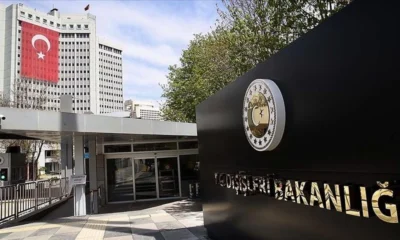

Turkey to pursue better African collaboration in Djibouti
According to sources in his ministry, Turkey’s foreign minister will visit Djibouti next week to attend a ministerial conference between...


Mali claims Barrick Gold violated deal as miner disputes
Mali accused Barrick Gold of not upholding promises made in a recent agreement but the Canadian miner refuted the accusations...
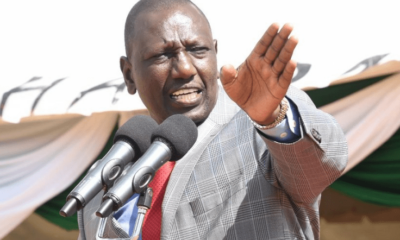

Video: Kenya’s Ruto targets inflation rate below 3%
In this video, Kenyan President, William Ruto, stressed the economic goals of his government and charged the public to believe...


Ethiopian PM Abiy Ahmed meets Putin at BRICS, eyes stronger ties
Ethiopian Prime Minister Abiy Ahmed, who is representing a member country at his first BRIC summit, had a bilateral discussion...
Trending
-
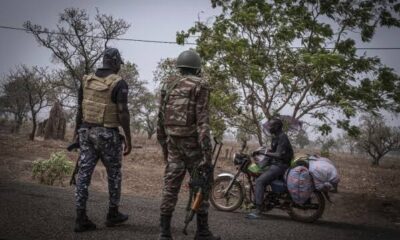
 Politics2 days ago
Politics2 days agoSources suggest Sahel jihadis finding safety in Ghana
-
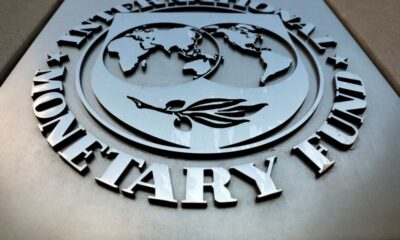
 VenturesNow2 days ago
VenturesNow2 days agoEgyptian loan package size is appropriate, says IMF
-

 Uncategorized2 days ago
Uncategorized2 days agoEthiopian PM Abiy Ahmed meets Putin at BRICS, eyes stronger ties
-

 VenturesNow23 hours ago
VenturesNow23 hours agoMali claims Barrick Gold violated deal as miner disputes


